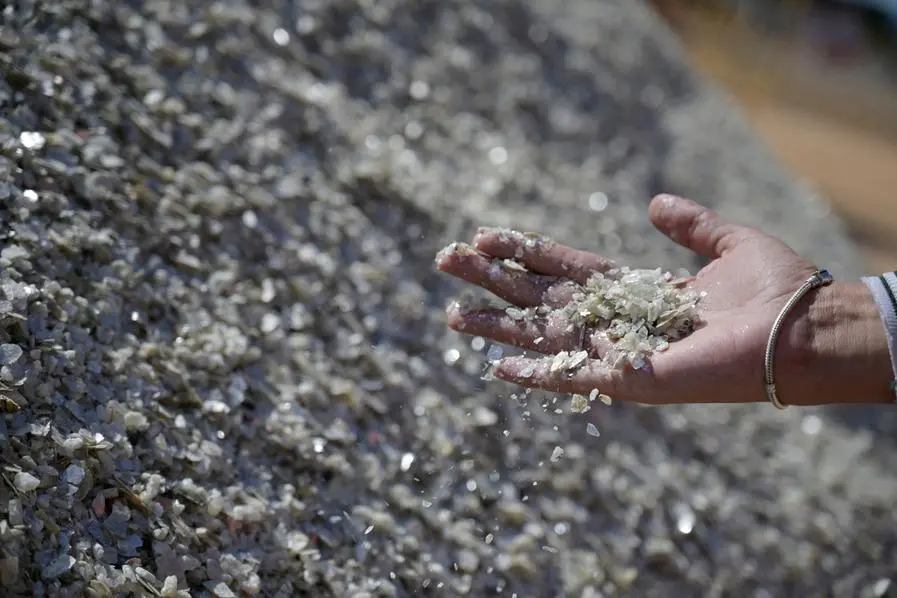PHOTO
SINGAPORE - The United Nations' International Seabed Authority (ISA) will meet on Monday to consider new rules allowing firms to extract minerals from the ocean floor, despite mounting concerns about the economic and environmental risks.
Supporters say deep sea mining will help boost supplies of raw materials like cobalt and nickel, which are needed for the global energy transition, but critics say it could destroy ecosystems and disrupt migratory routes.
As many as 27 countries are calling for at least a temporary halt of activities, and Hawaii last week became the fourth Pacific U.S. state to issue a comprehensive ban.
Meeting in Kingston, Jamaica, until July 26, the 36-member ISA council will negotiate the latest draft of a long-awaited "mining code", designed to regulate the exploration and extraction of "polymetallic nodules" and other deposits on the ocean floor.
"I think it will become very clear at this session that there is still a long way to go," said Pradeep Singh, an ocean governance specialist at Germany's Potsdam Institute, saying that countries were still divided over the final text.
Many are concerned the code is being rushed through without proper scrutiny and want to slow the process down, Singh said.
While many are concerned about environmental risks, others are also looking for clarity about how proceeds from deep sea mining will eventually be shared.
The rush to complete the mining code was triggered by the Pacific island state of Nauru, which is expected to submit a mining license application on behalf of Canada's The Metals Company (TMC) later this year, regardless of whether or not regulations are complete.
"A growing number of states are saying no, we will not allow that to happen," said Singh. "Those states calling for a pause remain committed to negotiating the regulations, so it is not as if they are saying they don't want deep sea mining to happen."
After the council session, the ISA's 168-member Assembly will also meet on July 29 to elect a secretary-general, with Brazil's Leticia Carvalho standing against the incumbent, Michael Lodge.
Nine countries - including Chile and France - will also call on the Assembly to discuss specific policies to safeguard the marine environment if and when mining is allowed to start. China blocked a similar proposal last year.
TMC has acknowledged that deep sea mining will have an environmental impact, but it is less damaging than terrestrial mining, and trade-offs are required to guarantee transition mineral supplies.
But apart from the environmental risks, no one has yet been able to establish the economic and technical case for operating heavy industrial machinery in the depths of the ocean, especially as costs rise, said Victor Vescovo, a U.S. investor and deep sea explorer.
"It is a poor business case that is only getting worse," he said.
(Reporting by David Stanway, Editing by Angus MacSwan)





















